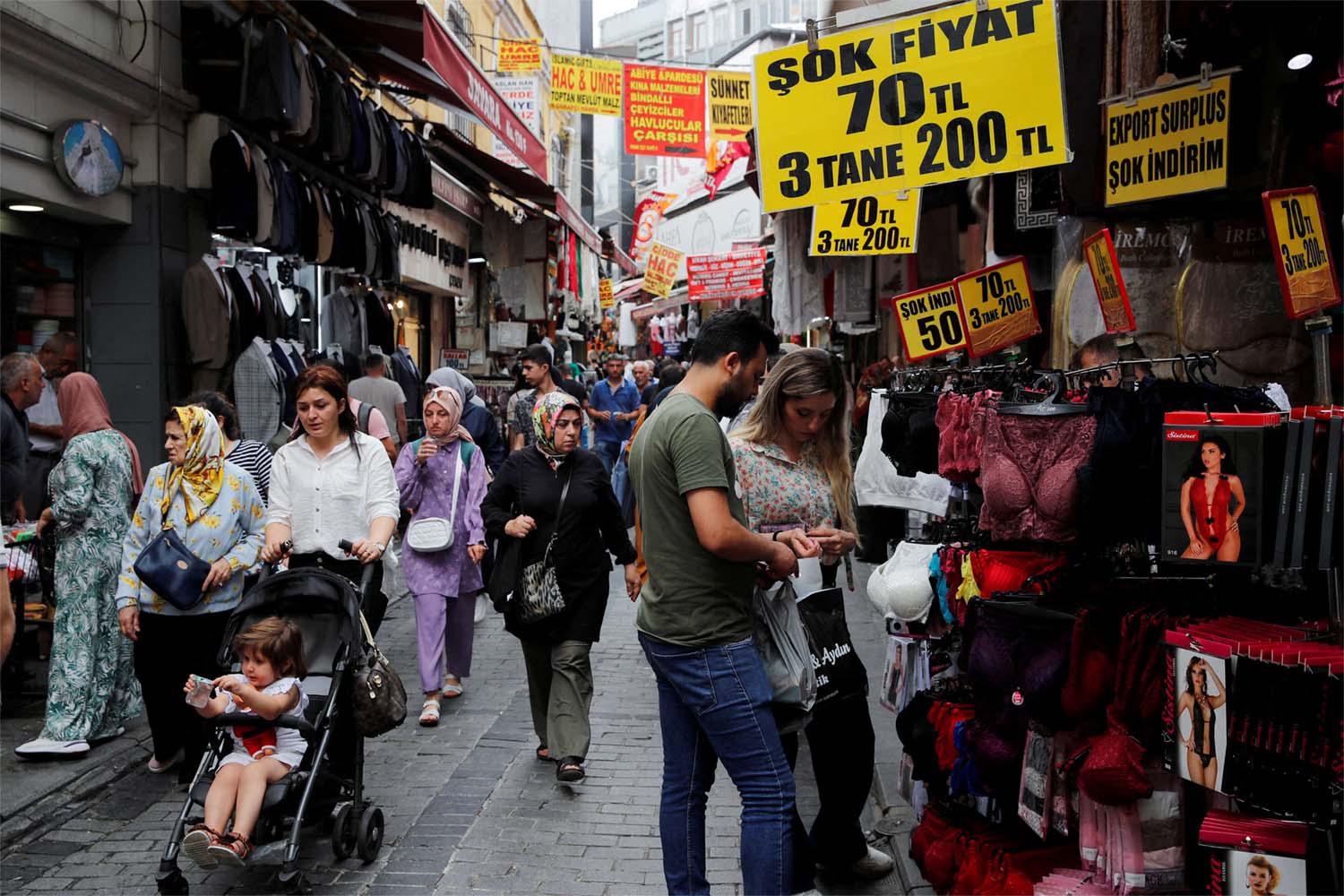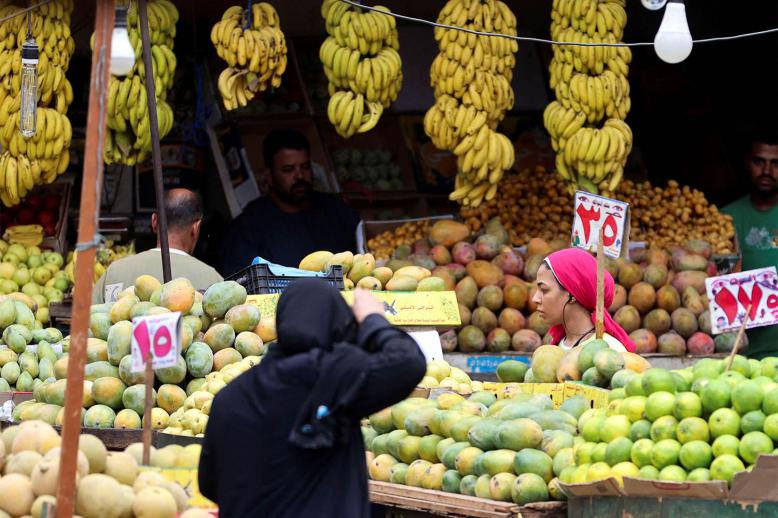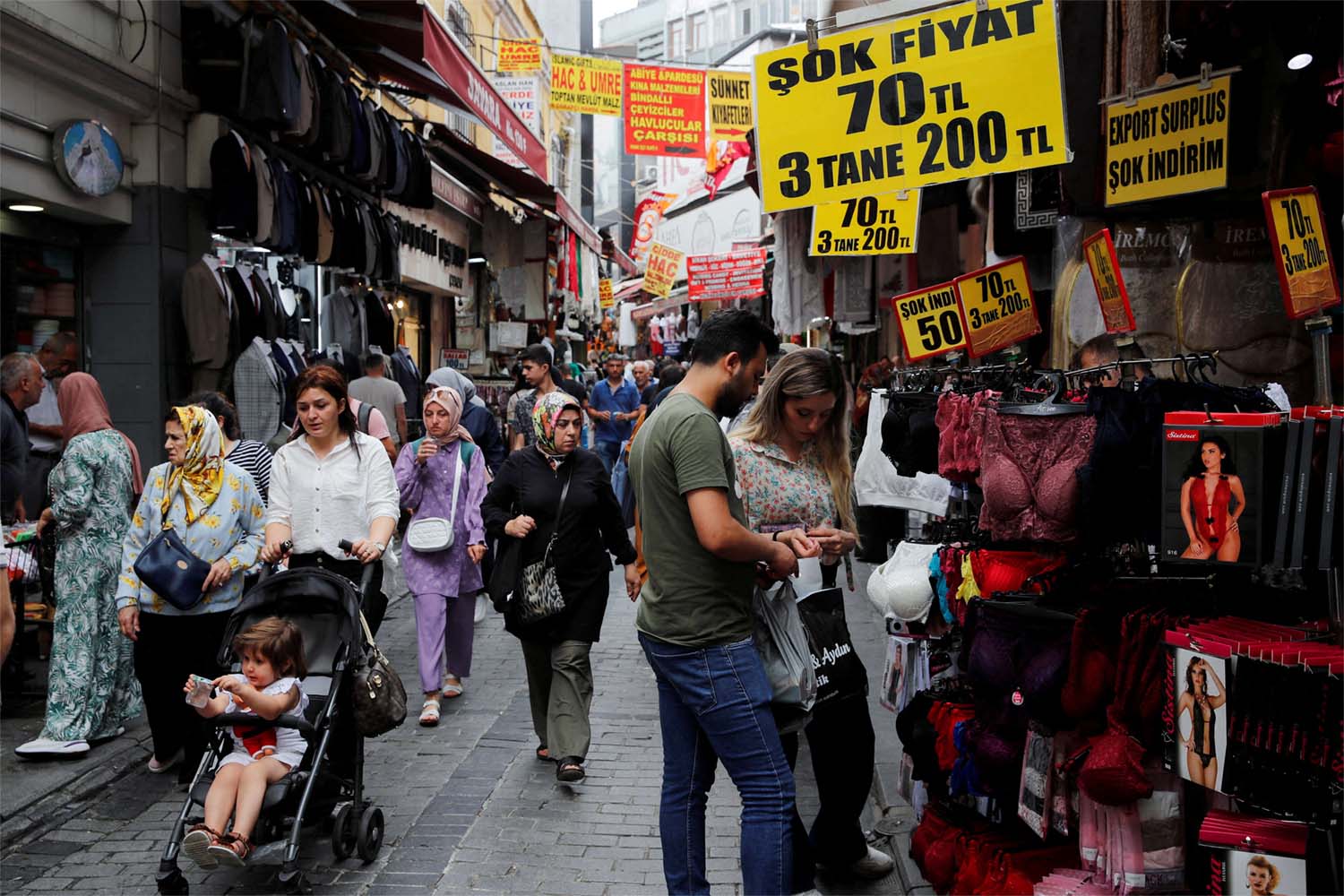Turkey's economy grew by more-than-expected 3.8% in Q2
ISTANBUL - Turkey's economy grew by a more-than-expected 3.8% in the second quarter due to strong household spending, data showed on Thursday, but activity should slow through year-end as election-related stimulus fades and big rate hikes weigh.
On a quarterly basis, gross domestic product (GDP) expanded 3.5% on a seasonally and calendar-adjusted basis, also outstripping forecasts, Turkish Statistical Institute data showed.
The annual measure, just shy of trend growth levels, was boosted by a more than 10 percentage point rise in household expenditure, driven in part by a currency crash in June and a rebound in inflation that stoked consumption.
"Consumer spending was exceptionally strong (and) fuelled a sharp rise in imports, resulting in a drag on GDP growth from net trade," William Jackson, chief emerging markets economist at Capital Economics, wrote in a client note.
Growth was also supported by fiscal stimulus ahead of May elections, in which President Tayyip Erdogan extended his rule into a third decade.
Before the vote, the central bank had long slashed interest rates as Erdogan prioritised growth, exports and investment over reining in inflation. These cheap borrowing costs also boosted economic activity.
But after the central bank began tightening in June, reflecting a broader U-turn towards more orthodox policies, growth is expected to cool.
The bank has raised the policy rate by 1,650 basis points to 25% so far. Inflation stood at 47.83% in July and is expected to top 55% in August.
In a Reuters poll, the economy was forecast to have expanded 3.5% annually in the second quarter, and it pointed to a slowdown in coming months, with full-year growth seen at 2.9%.
Thursday's growth data, as well as other imports data and surveys, suggest that the policy shift has not had the desired effect on weakening demand, curbing inflation and the current account deficit, said Jackson of Capital Economics.
"This may lie behind the surprisingly large interest rate hike this month and will probably trigger another large rate hike at the next meeting," he added. "Growth will weaken in the second half of the year."
First quarter growth was revised down to 3.9% from 4.0%, the official data showed, reflecting massive earthquakes that devastated the country's southeast in February, killing more than 50,000. Reconstruction should cost more than $100 billion.
Turkey's economy bounced back strongly from the pandemic and grew a revised 5.5% in 2022, extending its hot streak on strong domestic demand and exports. That was despite a slowdown in growth for its main trading partners due to the war in Ukraine, which hurt exports in the second half of the year.





